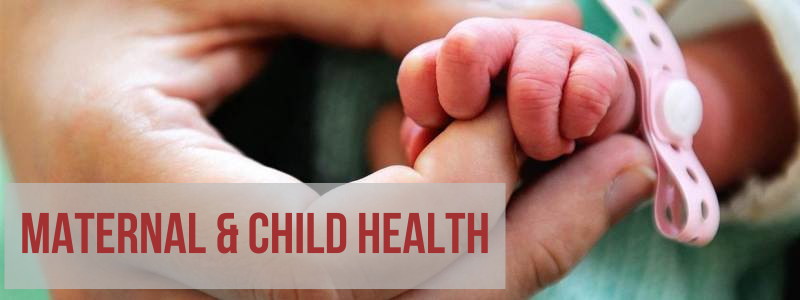By Muhammad Amaan
Some stakeholders in the health sector have called for use of technology to significantly improve health outcomes for mothers and children and reduce mortality.
They made the call on Thursday in Abuja during a panel discussion at the 2024 Maternal Health Policy Dialogue.
The event with the theme: “Scaling Maternal Health Innovations in Nigeria,” was organised by Nigeria Health Watch.
Maternal mortality remains a critical issue in Nigeria as the country ranks second globally in maternal deaths, according to a 2023 WHO Report.
This statistic underscores the gap between Nigeria’s current health outcomes and the Sustainable Development Goals target of fewer than 70 maternal deaths per 100,000 live births.
Systemic barriers such as poor access to healthcare services, financial constraints, and inadequate transportation infrastructure contribute to delays in seeking maternal healthcare services, exacerbating the crisis.
However, innovative approaches in digital health, telehealth and evidence-based interventions such as E-MOTIVE, a postpartum haemorrhage management bundle, offer promising solutions.
Ms Onyedikachi Ewe, Senior Programme and Advocacy Manager at Nigeria Health Watch, said that there was need to explore various digital solutions.
According to Ewe, the event focused on scaling up digital health and data solutions within Nigeria’s healthcare system to improve maternal health.
She said that digital health innovations were playing a crucial role in revolutionising global healthcare.
“These innovations range from providing remote access to healthcare information and resources for expectant mothers, to tracking prenatal visits and vaccinations,” she said.
Mrs Njide Ndili, Country Director of Foundation PharmAccess Nigeria, highlighted the importance of identifying priority areas for impactful interventions at both the patient and provider levels.
According to her, if the country ensures that patients receive the needed care and adequately equip healthcare providers, it will address individual, sectoral and institutional challenges.
She further stressed that leveraging existing frameworks and innovations could enhance the capacity to provide comprehensive maternal healthcare in the country.
Ms Chiagozie Abiakam, Associate Manager at mDoc Healthcare, spoke about how the organisation leveraged artificial intelligence to build capacity and ensure that women received high-quality care.
Abiakam stressed that enhancing the capacity of health systems would enable them to deliver proper maternal healthcare, addressing both immediate and long-term needs.
She said that this approach would not only improve patients’outcomes but would also strengthen the overall health infrastructure, fostering sustainable and impactful changes in maternal health.
Ms Arit Edem, Senior Associate at HelpMum, said that financial constraints and misconceptions about vaccines were significant barriers that prevented many mothers from taking their children for immunisation.
Edem highlighted financial supports provided by HelpMum to alleviate the economic burden on families, making it easier for them to access immunisation services.
She stated that HelpMum also educated mothers by providing clear and accurate information to encourage vaccination.
Mr Daniel Momoh, Customer Success Lead at Nivi Inc, said that Nivi Nigeria had been effective in using digital health solutions to monitor interactions between women and their healthcare providers.
Momoh pointed out that digital tools provided patients with more options, making their interactions with healthcare providers more dynamic and interactive.
He said that the approach not only improved patient’s satisfaction but also fostered a more responsive and patient-centered healthcare environment.
Mrs Vivianne Ihekweazu, Managing Director of Nigeria Health Watch, said that the efforts highlighted the urgent need for comprehensive interventions and the potential of digital health innovations to transform maternal and child healthcare.
Ihekweazu said that if the country and its sub-nationals could leverage technology, they would create a sustainable and impactful changes that would benefit mothers and children.
According to her, access to quality maternal healthcare services should not be a privilege but a right.
She said that the degree of care and attention a country devoted to maternal health, such as safeguarding women’s health and well-being throughout pregnancy, delivery, and the postpartum period, often demonstrated how much it valued its people.
She said that Nigeria Health Watch aimed to increase awareness about successful maternal health innovations such as E-MOTIVE bundle of care, and make policy recommendations as well as strengthen stakeholder collaboration.




